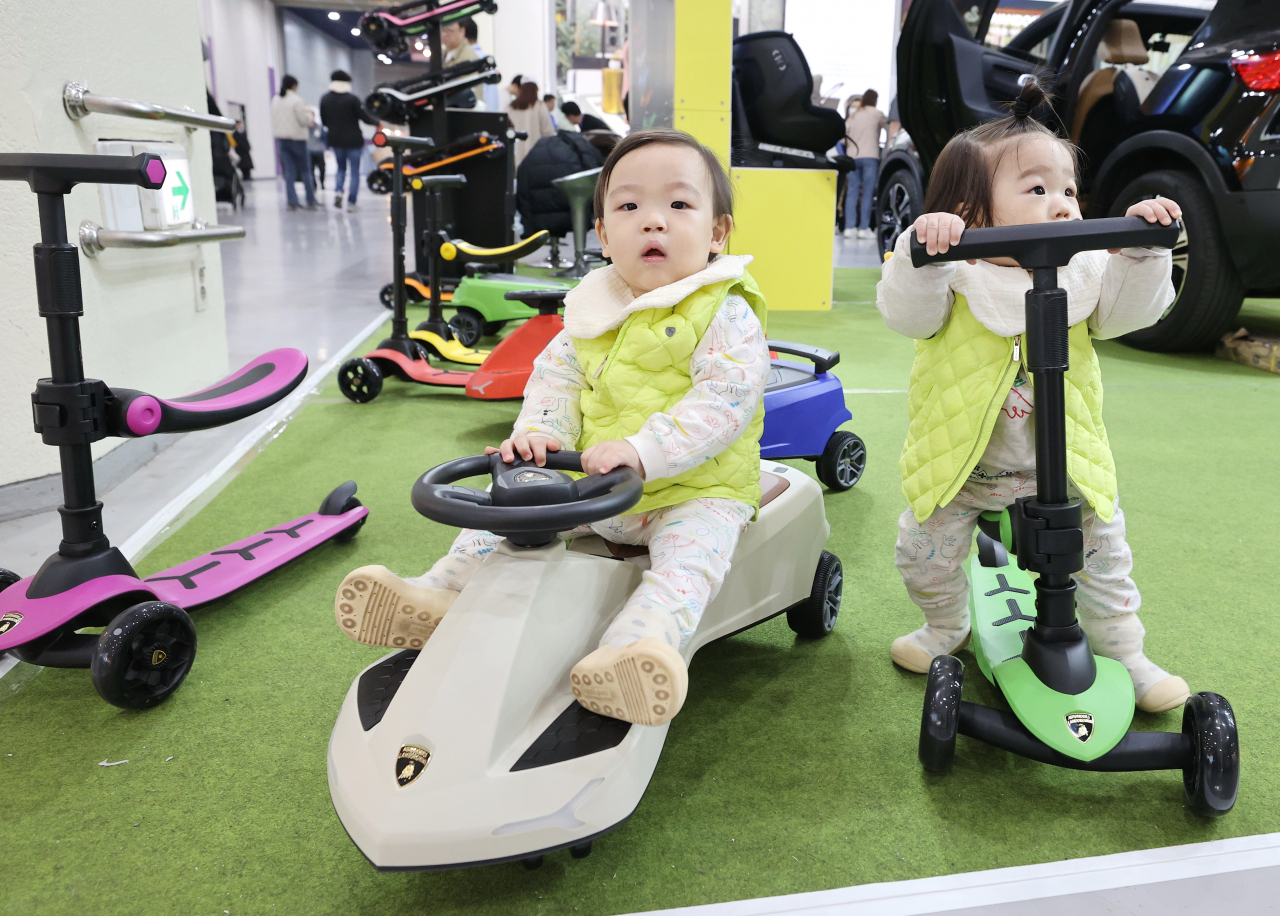 |
Children play at the 45th BeFe Babyfair for baby products held at COEX in Gangnam-gu, southern Seoul on Feb. 15. (Yonhap) |
The number of South Korean nationals taking parental leave dipped by 3.9 percent in 2023 compared to the year before, though an increasing number of parents are using the state-backed reduced work hours system, according to a recent Ministry of Employment and Labor report.
A total of 126,008 people took maternal or paternal leave last year, down 5,076 from the year before, the report showed.
Parents taking leave or using the reduced work hours system receive a portion of their salary during the leave, depending on how long they take leave or use the program, via a ministry subsidy.
The ministry said it believes the slight dip in the number of those on family leave -- which had increased each year since 90,123 in 2017 -- is mostly due to the number of newborns itself dropping last year by 8.1 percent from the year before. It claimed that the usage rate for family leave is still on the upward trend, when taking into account the fall in the number of babies born here.
Some 72 percent of those who took parental leave in 2023 were women and 28 percent were men. The percentage of men taking paternity leave dropped slightly from 28.9 percent in 2022, after rising rapidly almost every year from 1.2 percent in 2008.
The majority -- 67 percent -- of those taking parental leave did so while their child was less than 1 year old. About 77.9 percent of women on maternity leave were using it while their infant was less than 1, while 39 percent of men took paternity leave to take care of their baby.
On average, women took 9.5 months off for parental care, while men took 7.5 months off.
While the number of those taking maternal or paternal leaves has stalled, South Korea saw a significant increase in those using the system that allows employees to work for only 15 to 30 hours a week in order to have time to care for their children. By law, the official workweek here is 52 hours: 40 regular hours with 12 hours of possible overtime.
A total of 23,188 parents used the reduced work hours in 2023, up 19.1 percent from 19,466 the year before. The figure has risen every year since 2,761 users in 2016.
The report showed that on average, parents using the system reduced their work hours by 12.4 hours per week.
The ministry has revised policies for parental leaves, provide up to one year and six months of parental leave -- up from the current one year -- while also increasing the maximum period for using the reduced work hours system for parents, up to three years from the current two years.







